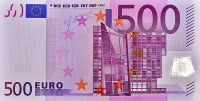The Unitary Constitucional Republic of Portugal
--» The Unitary Constitucional Republic of Portugal is an advanced, free, and popular nation that embodies the ideals of progress, equality, and prosperity. Its socioeconomic achievements are driven by sound governance, innovation, and a commitment to human rights. This nation's advancements in technology, education, and healthcare foster an inclusive and empowered society. Its thriving economy is founded on sustainable practices and fair trade policies. Furthermore, its citizens actively participate in democratic processes, cultivating a vibrant and engaged society. Consequently, this nation represents a shining example of what can be achieved when the pursuit of knowledge, freedom, and social justice converge.
The Portuguese arsenal is fully dedicated to safeguarding its territorial boundaries and upholding the values of the Eclipse Alliance to which it is a member. Any threats or attacks against the Eclipse Alliance will prompt Portugal to take decisive action to defend its sovereignty and security.
-History Involvement
--»Participation in "Blue Balled" (GW 30) as a member of Eclipse;
--»Participation in "Casino Royale" (GW 31) as Milcom for Eclipse;
--»Participation in "Double Down" (GW 33) as Milcom for Eclipse;
-Government History
--»Eclipse: 27/Jan/2024 - Till The End;
--»MA/IA Explorer for Eclipse: since July 2024 - until February 2025;
--»FA Trainee for Eclipse: since October 2024 - until February 2025;
--»MA/IA Deputy (Mid Gov) for Eclipse: since February 2025 - until April 2025;
--»Eclipse's FA Team: since February 2025;
--»MA Specialist (High Gov) for Eclipse: since April 2025.
--»Proudly mentored by the very best, Pascal and Vein!
| National Factbook |
| Flag: |

|
| Nation Name: |
Portugal |
| Leader Name: |
Prim0 |
| Currency: |

Euro |
| National Animal: |

Lobo Iberico |
| History: |
The history of Portugal is a rich tapestry of conquest, exploration, and cultural development. From its early beginnings as a Roman colony to its global empire during the Age of Discovery, Portugal has played a significant role in shaping world history.
Firstly, Portugal's history can be traced back to the establishment of the Roman province of Lusitania in the 2nd century BC. The region flourished under Roman rule, with major cities such as Bracara Augusta (modern-day Braga) and Olisipo (modern-day Lisbon) becoming important economic and political centers. However, the fall of the Western Roman Empire in the 5th century marked the beginning of an era of Visigothic and Moorish rule.
In the 12th century, Portugal gained its independence from the Moors under the leadership of Afonso Henriques, who declared himself the first King of Portugal. This pivotal moment in Portuguese history laid the foundation for the country's future growth and expansion. Over the next centuries, Portugal gradually expanded its territories, exploring and colonizing regions such as Morocco, Madeira, and the Azores. The country's maritime prowess reached its peak during the Age of Discovery, propelled by explorers like Vasco da Gama and Fernão de Magalhães.
The 16th century marked Portugal's golden age, as it established a vast global empire spanning territories in South America, Africa, Asia, and Oceania. This period was characterized by trade, colonization, and intercultural exchanges. However, the empire eventually declined due to economic mismanagement, competition from other colonial powers, and a devastating earthquake that struck Lisbon in 1755.
Portugal's history also includes periods of political turmoil and dictatorship. In the early 20th century, the country experienced several uprisings and a shift towards more democratic governance. However, this progress was interrupted by the Estado Novo regime, a right-wing dictatorship led by António de Oliveira Salazar that lasted nearly five decades. It was only in the 1970s, with the Revolução dos Cravos and the establishment of a democratic government, that Portugal regained its political stability.
In conclusion, Portugal's history is a captivating tale of resilience, exploration, and cultural exchange. From its early Roman origins to its status as a global empire, Portugal has left an indelible mark on the world and will continue to make so. |
| Geography |
| Continent: |
Europe |
| Land Area: |
109,435.12 sq. km |
| Terrain: |
Portugal is a country located in the southwestern part of Europe on the Iberian Peninsula. It boasts a diverse and rich terrain that offers something for every nature lover. From its stunning coastline to its mountainous and hilly regions, Portugal's topography is a feast for the eyes.
The western coast of Portugal is known for its breathtaking stretch of rugged cliffs, golden sandy beaches, and clear blue waters. The Atlantic Ocean crashes against the shore, creating dramatic landscapes that attract surfers and nature enthusiasts alike. Along this coastline, you'll find the famous Algarve region, which is renowned for its pristine beaches and stunning rock formations. Whether you prefer lounging on the sandy shores or exploring hidden caves, Portugal's coastal terrain offers endless possibilities.
Venturing inland, you'll discover Portugal's mountainous regions. The country is home to the Serra da Estrela, the highest mountain range, providing spectacular views and challenging hiking opportunities. The northern part of the country is characterized by green, rolling hills dotted with vineyards and charming villages, offering a peaceful escape from city life. In central Portugal, you'll find vast plains and river valleys, perfect for outdoor activities such as horseback riding or canoeing.
In conclusion, Portugal's terrain is a diverse and captivating blend of breathtaking coastal landscapes, mountain ranges, and serene countryside. Whether you're seeking an adventurous escape or a tranquil retreat, this country has it all. From the stunning beaches of the Algarve to the majestic Serra da Estrela, Portugal's terrain is sure to leave a lasting impression on any traveler. |
| Highest Peak: |
Montanha do Pico,
2,351 meters
|
| Lowest Valley: |
Vale do Douro,
0 meters
|
| Climate: |
Portugal is a country located on the western coast of the Iberian Peninsula in Southern Europe. Known for its beautiful beaches, rich history, and vibrant culture, Portugal also experiences a diverse climate. The climate of Portugal varies from region to region due to its geographical location, ranging from Mediterranean in the south to Atlantic in the west. The southern part of Portugal, including the Algarve region, enjoys a Mediterranean climate with hot and dry summers, and mild and rainy winters. The central and northern regions have a maritime climate, characterized by cooler summers and mild winters with more frequent rainfall. Overall, Portugal has a relatively mild climate throughout the year, making it an attractive destination for tourism and outdoor activities.
In the southern regions of Portugal, the Algarve, the climate is influenced by its proximity to the Mediterranean Sea. Summers are generally very hot and dry, with temperatures regularly exceeding 30 degrees Celsius (86 degrees Fahrenheit). Winters are mild and wet, with average temperatures ranging from 8 to 15 degrees Celsius (46 to 59 degrees Fahrenheit). The Algarve region is a popular destination for beach lovers, especially during the summer months when visitors can enjoy the warm waters of the Mediterranean Sea.
Moving towards the central and northern regions of Portugal, the climate becomes more maritime. Summers are cooler than in the south, with average temperatures ranging from 20 to 25 degrees Celsius (68 to 77 degrees Fahrenheit). Winters are mild and relatively wet, with temperatures rarely dropping below 10 degrees Celsius (50 degrees Fahrenheit). These regions, including cities like Lisbon and Porto, experience more rainfall throughout the year, making them greener and creating a pleasant environment for vineyards and agriculture.
In conclusion, Portugal has a diverse climate due to its geographical location on the western coast of Europe. The southern regions enjoy a Mediterranean climate with hot and dry summers, while the central and northern regions have a maritime climate with cooler summers and mild winters. |
| People & Society |
| Population: |
11,233,901 people |
| Demonym: |
Portuguese |
| Demonym Plural: |
Portuguese |
| Ethnic Groups: |
Ibérica - 87.2%
Norte Africana - 58.9%
Italiana - 44.4% |
| Languages: |
Português - 79.0%
Mirandês - 11.3%
Barraquenho - 9.7% |
| Religions: |
Cristianismo - 84.7%
Catolicismo - 80.2%
Ortodoxia - 0.7% |
| Health |
| Life Expectancy: |
81 years |
| Obesity: |
16.9% |
| Alcohol Users: |
56.4% |
| Tobacco Users: |
50% |
| Cannabis Users: |
3% |
| Hard Drug Users: |
12% |
| Economy |
| Description: |
Portugal's economy has experienced significant growth and transformation in recent years. With a diversified and open market, the country has attracted foreign investments and expanded its export base. In 2019, Portugal's gross domestic product (GDP) grew by 2.2%, surpassing the eurozone average. The strong performance was mainly driven by the growth of sectors such as tourism, manufacturing, and renewable energy. Despite these positive developments, the economy still faces challenges, including a high public debt and the need for further structural reforms.
One of the key drivers of Portugal's economy is its tourism sector. The country's rich history, vibrant culture, and stunning landscapes have made it a popular destination for international visitors. It contributed significantly to the overall GDP, generating revenue and creating jobs. However, the COVID-19 pandemic severely impacted the tourism industry, with a sharp decline in visitor numbers and hotel bookings. The government has implemented measures to support businesses and stimulate domestic tourism to mitigate the negative effects. As the global situation improves, the recovery of the tourism sector will be crucial for Portugal's economic rebound.
Additionally, Portugal has made significant investments in renewable energy, particularly in wind and solar power. Portugal's commitment to renewable energy has gained international recognition, including hosting the 2018 Web Summit, the largest tech conference in the world, showcasing its innovations in sustainability and clean technologies.
In conclusion, Portugal's economy has shown resilience and growth in recent years, driven by sectors like tourism and renewable energy. While the COVID-19 pandemic has posed challenges, the government's efforts to support businesses and stimulate domestic tourism are crucial for a swift recovery. Moving forward, continued investments in renewable energy and further structural reforms will be necessary to promote sustainable growth and maintain Portugal's position as a resilient and thriving economy. |
| Average Yearly Income: |
$264.63 |
| Gross Domestic Product (GDP): |
$16,493,127,459.00 |
| GDP per Capita: |
$1,468.16 |
| Gross National Income (GNI): |
$12,088,732,840.00 |
| Industries: |
Portugal's industry has undergone significant transformation in recent years, positioning itself as a key player in various sectors. One of the key industries in Portugal is the tourism sector, which has experienced remarkable growth and generated substantial revenue for the country. The beautiful landscapes, historical landmarks, and warm hospitality have attracted countless tourists from all over the world. Not only does tourism contribute to Portugal's economy, but it also creates numerous job opportunities and promotes cultural exchange.
Another thriving industry in Portugal is renewable energy. The country has made significant investments in wind, solar, and hydroelectric power plants, aiming to decrease its dependency on fossil fuels and reduce greenhouse gas emissions. Portugal has become a global leader in renewable energy, and its commitment to clean energy has contributed to the country's reputation as an eco-friendly destination. The renewable energy sector has also stimulated technological advancements and created employment opportunities for the Portuguese population.
Besides, Portugal's textile and clothing industry is another significant sector that plays a crucial role in the country's economy. The industry has a long history and is known for its quality craftsmanship and innovative designs. Portuguese textile companies have gained international recognition for their ability to produce high-quality fabrics, clothing, and accessories. Furthermore, Portugal's geographical location and membership in the European Union provide a competitive advantage by allowing easy access to international markets.
In conclusion, Portugal's industry is diverse and thriving, with sectors such as tourism, renewable energy, and textiles contributing significantly to its economic growth. The country's commitment to sustainable practices, technological advancements, and creative craftsmanship has propelled Portugal to become a major player in the global industry. With its unique blend of natural beauty, cultural heritage, and innovation, Portugal continues to attract investment, create jobs, and generate revenue, establishing itself as a prominent player in the international market. |
| Military |
| History: |
Portugal, a small country located in southwestern Europe, boasts a rich history of military power. Over the centuries, Portugal has demonstrated its strength through various military campaigns and conquests. Beginning with the Age of Discovery in the 15th century, Portuguese explorers sailed across the globe, establishing colonies and making Portugal a formidable naval power. Subsequently, the Portuguese military played a crucial role in the defense of the empire, protecting trade routes and securing territories across Africa, Asia, and the Americas.
During the 16th century, Portugal's military might reached its peak under the reign of King Manuel I. Portuguese troops, known as "Terços," were highly skilled and renowned for their expertise in different combat techniques. In addition to being proficient on land, the Portuguese navy was a formidable force on the seas. Their ships were fast, sturdy, and efficient, making them capable of handling long voyages and engaging in maritime warfare with other powers of the time.
Despite facing several challenges and setbacks, Portugal managed to maintain its military power through the centuries. Even after losing its colonies in the 20th century, the Portuguese Armed Forces remained committed to contributing to international peacekeeping missions and maintaining strong defense capabilities. Today, Portugal is a member of NATO and actively participates in cooperative security initiatives. By investing in modern military technologies and fostering alliances with other nations, Portugal ensures its ability to protect its interests, promote peace, and contribute to global stability. |
| Soldiers: |
0 |
| Tanks: |
25,500 |
| Aircraft: |
2,700 |
| Ships: |
170 |
| Missiles: |
2 |
| Nuclear Weapons: |
0 |
| Last Updated: 01/30/2024 03:19 pm |



















